Building resilience and good quality institutions is vital for peace, stability and shared prosperity. In tackling the climate crisis, and the many other man-made crises, it is vital to build knowledge as to what institutional features can contribute to fostering stability and resilience, and how institutions that are not serving their purpose anymore can be changed, reformed or reinvented. The collective benefit that arises from good quality institutions is often taken as a given — but it is hard earned and, in the evolutionary dance between technology and power will not remain static.
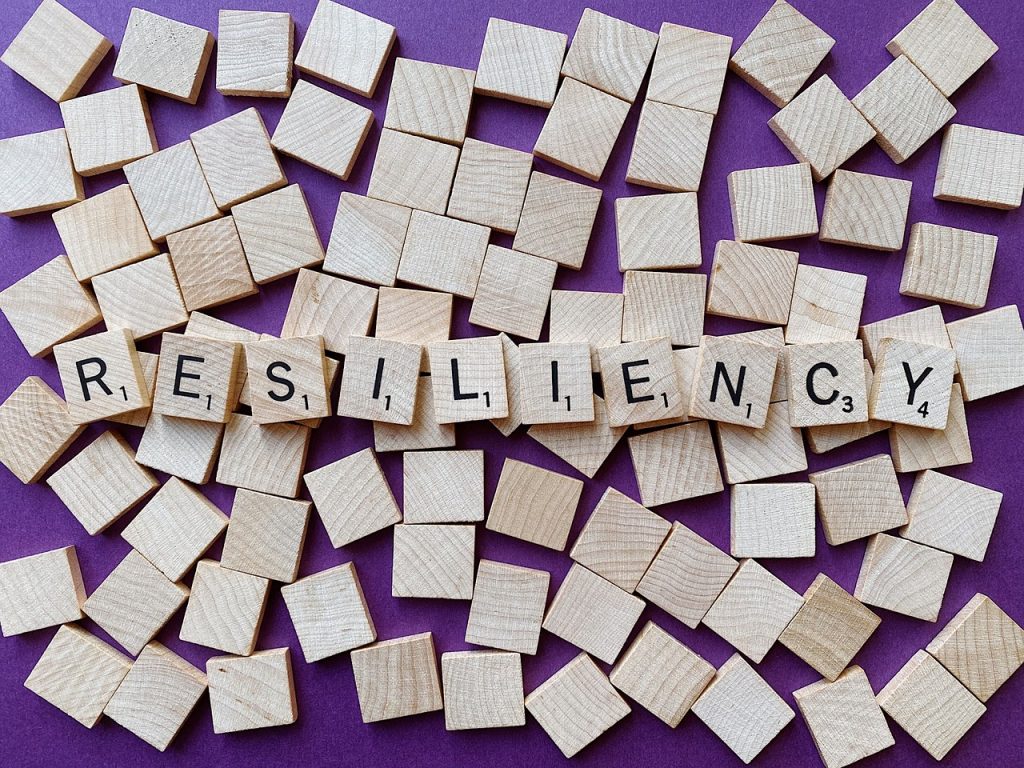
Research
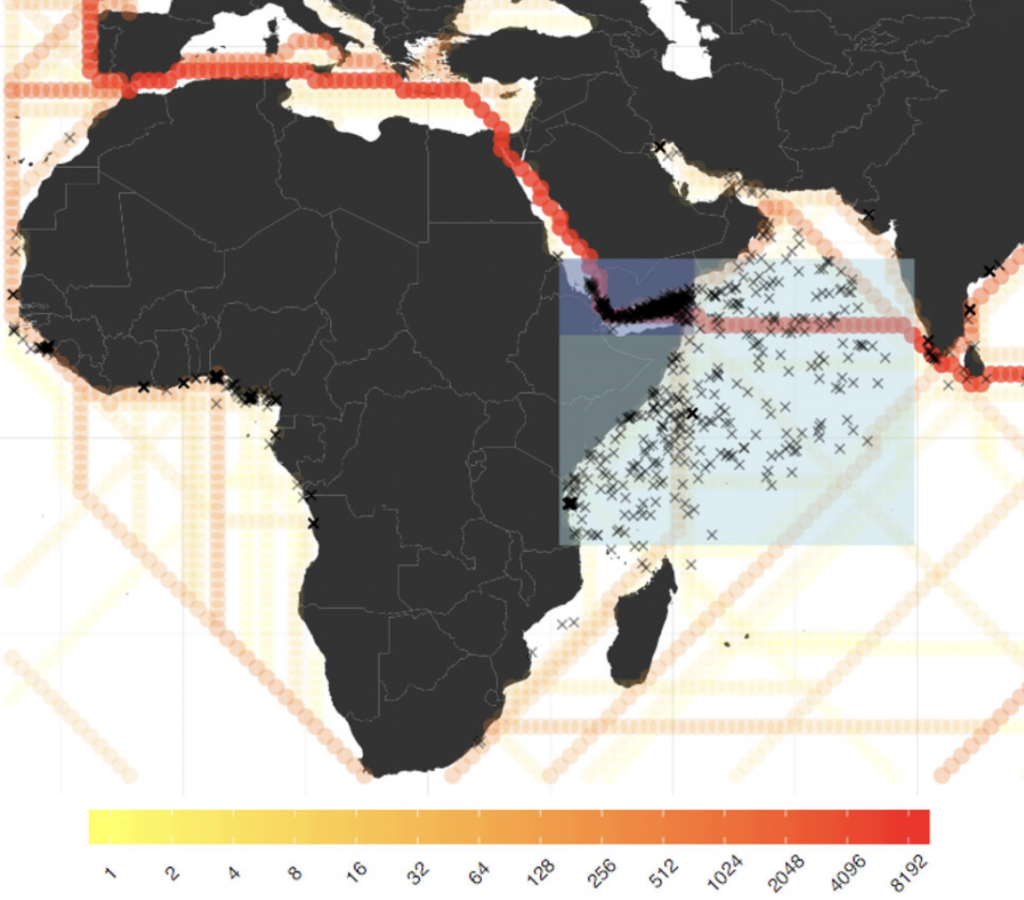
The Welfare Cost of Lawlessness: Evidence from Somali Piracy, joint with Tim Besley and Hannes-Felix Mueller. Journal of the European Economics Association, Volume 13, Issue 2, pages 203 – 239, April 2015,🔓 Open Access.
⌨️ Blog Post
Broader coverage: Washington Post, Financial Times, Foreign Policy, VoxEU, IGC, Quartz.
Summary: Somali piracy most immediately was caused by the breakdown of law and order in Somalia — which some argue is directly related to climate change. The ensuing lack of policing of the exclusive economic zone resulted in predatory fishing — a coast guard emerged to tax the illegal fishing activity, which then morphed into full on piracy. This paper documents how piracy is effectively a tax on global trade that produces high cost but little revenue.
Take what you can: property rights, contestability and conflict, joint with Samuel Marden, Economic Journal, Volume 127, Issue 601, 757–783, May 2017,🔓 Open Access.
⌨️ Blog Post
Summary: Assigning property rights and enforcing property rights not only can help formalize disputes over assets, it can also serve to protect the commons. In this paper we showcase that the expansion of protected areas resulted in a decline in land related conflicts and reduced deforestation in the Brasilian amazon significantly, helping preserve the Amazon continuing as a carbon sink.
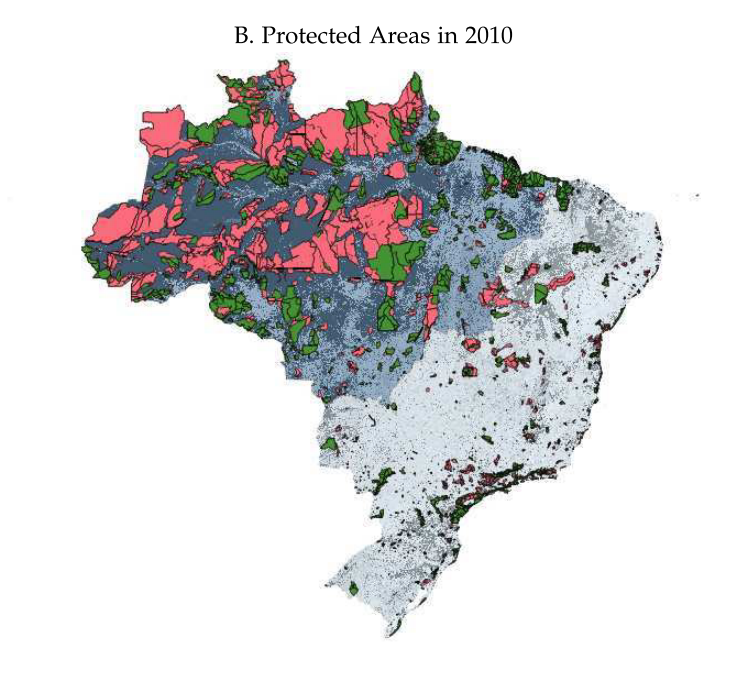
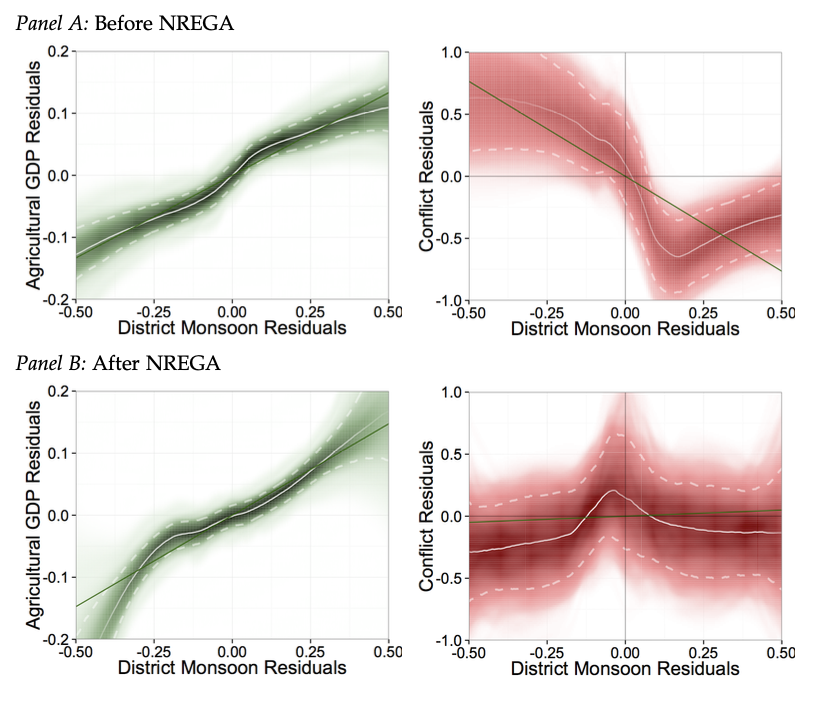
Can Workfare Programs Moderate Conflict? Evidence from India, Journal of the European Economics Association, Volume 18, Issue 6, December 2020, Pages 3337–3375, 🔓 Open Access.
⌨️ Blog Post
Broader coverage: The World Bank, Feature Story, International Growth Centre, Ideas for India, India at LSE, IndiaSpend, Sify.
Summary: This paper showcases that institution building and formalized risk sharing via an institutionalised transfer system can boost resilience and reduce the risk that climatic or weather induced income or productivity shocks create political and wider social instability taking the form of violent conflict. This type of institution is vital to boost resilience.
Cohesive Institutions and Political Violence, joint with Stephan Kyburz, forthcoming in Review of Economics and Statistics, 🔓 Open Access.
⌨️ Blog Post
Broader coverage: Center for Global Development
Summary: Natural resources and commodity price shocks often are associated with increased instability and civil conflict. This paper shows that democratic institutions producing more cohesive and more representative governments can weaken the relationship between natural resource rents and political and social instability.
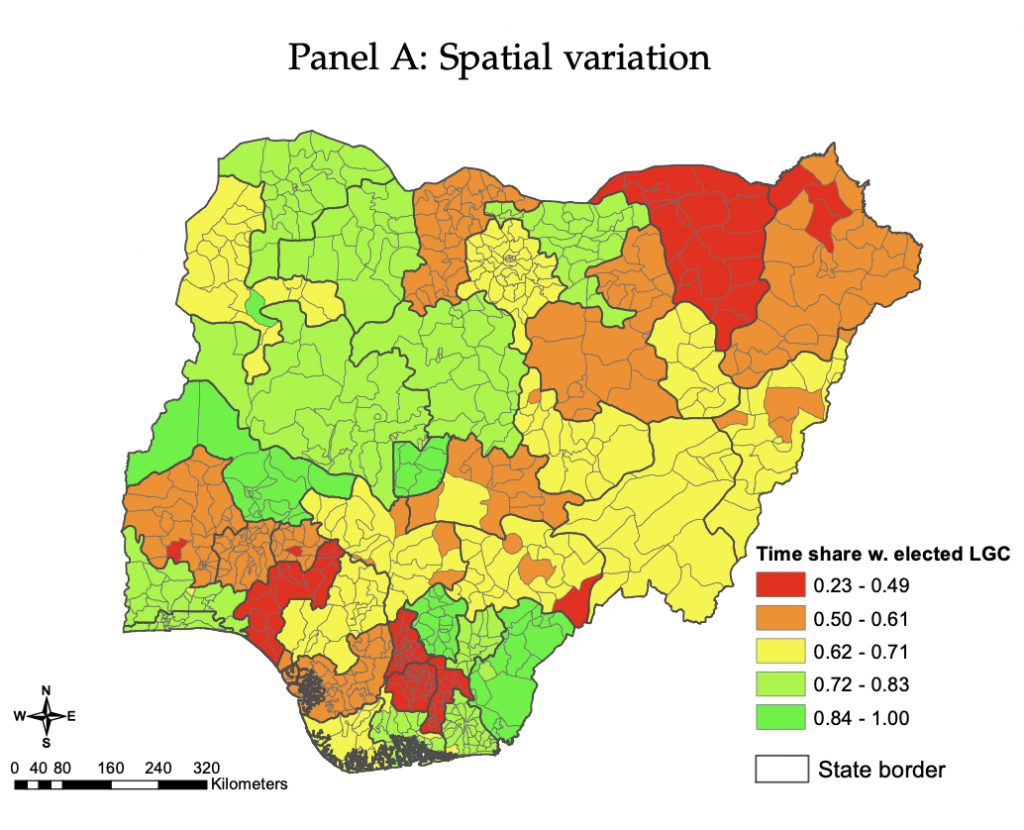
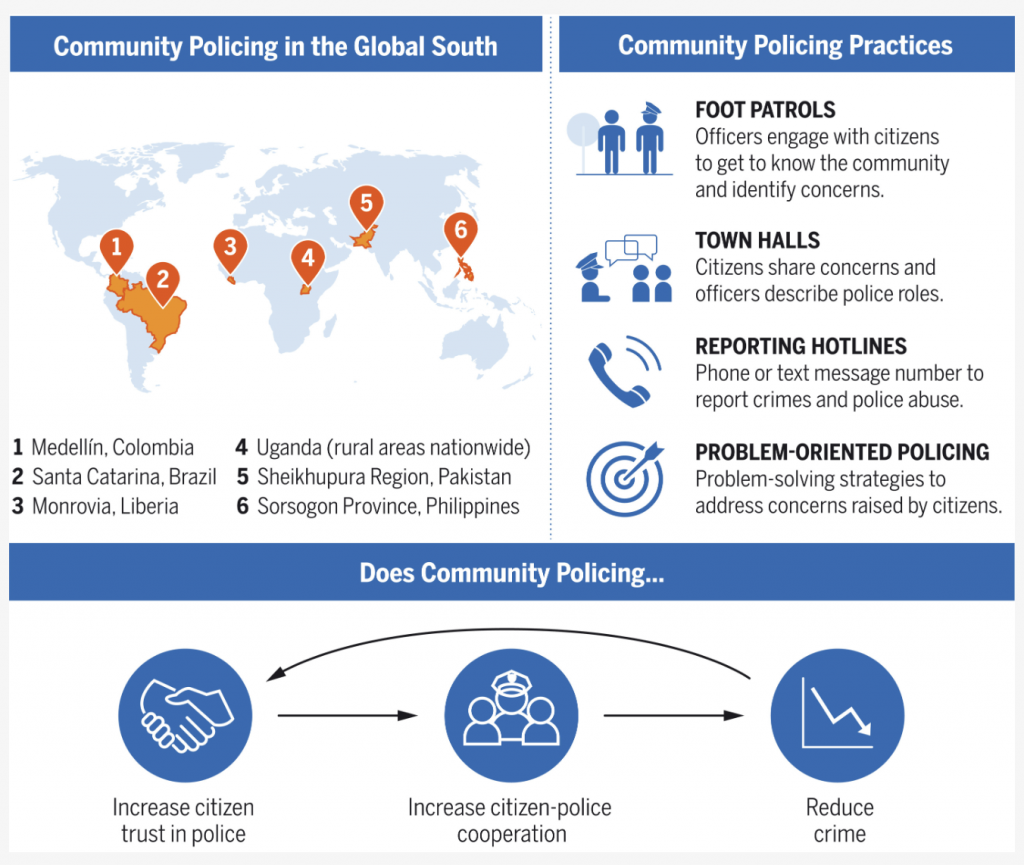
Community policing does not build citizen trust in police or reduce crime in the Global South, joint with Graeme Blair, Jeremy M Weinstein, Fotini Christia, Eric Arias, Emile Badran, Robert A Blair , Ali Cheema, Ahsan Farooqui, Thiemo Fetzer, Guy Grossman, Dotan Haim, Zulfiqar Hameed, Rebecca Hanson , Ali Hasanain, Dorothy Kronick, Benjamin S Morse, Robert Muggah, Fatiq Nadeem, Lily L Tsai, Matthew Nanes, Tara Slough, Nico Ravanilla, Jacob N Shapiro, Barbara Silva, Pedro C L Souza, Anna M Wilke, Science, 2021, Nov 26, 374 (6571).
Broader coverage: Foreign Policy, Phys.org, Penn Today.
Summary: This was part of a broader field experiment. My team was working on the Brasil subchapter. We used an innovative approach to showcase how online social connections can be used to build offline social capital. This documents the positive use case for social media.
De-escalation technology: the impact of body-worn cameras on citizen-police interactions, joint with Daniel Barbosa, Pedro CL Souza and Caterina Soto, under review, 🔓 Open access
⌨️ Blog Post
Broader coverage: Estado (1) (Portugese), Estado (2) (Portugese), BBC (Portugese), Resolution Foundation, Folha (Portugese), Fantastico (Portugese). O Globo (Portugese), G1 (Portugese), O Globo (2) (Portugese), Impact BWC Adoption order.
Summary: Police forces around the world wield the monopoly of violence in functioning democracies. Trust in the police has been eroded due to allegations of excessive use of force. This research shows that technology can be an effective tool to de-escalate citizen and police interactions and thereby leading to a reduction in the use of force. forces typically arose
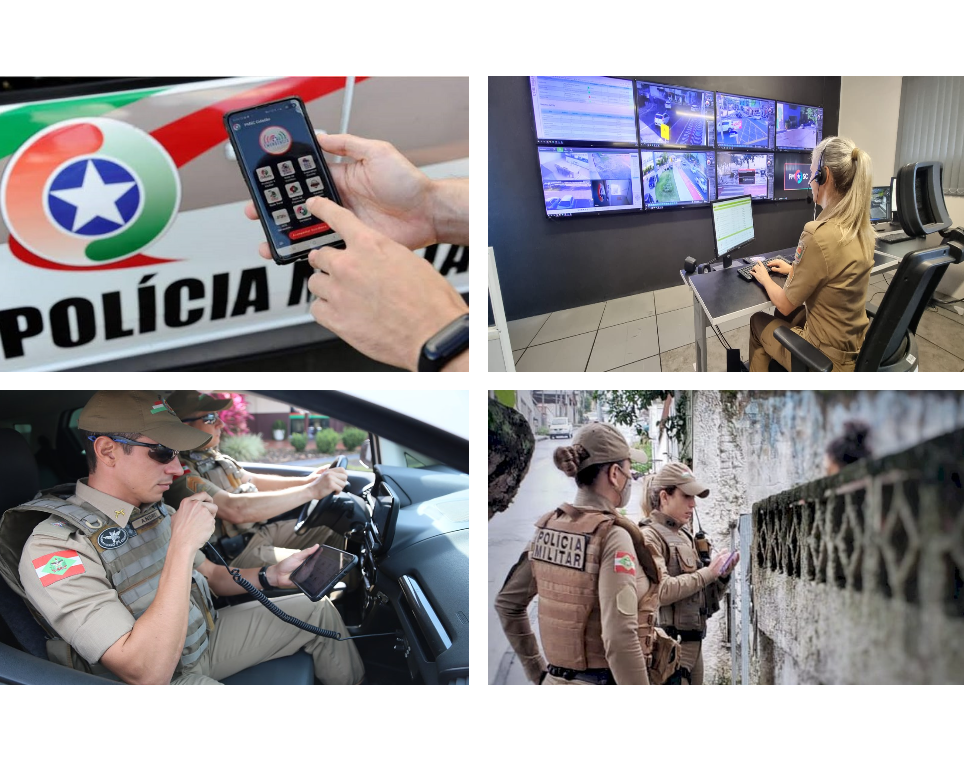
Impact
The work connected to this research theme has had a notable amount of impact within academia and beyond. Most directly the paper on body-worn cameras has been presented to policy makers in Brasil, including in front of the supreme court. The study is cited in the order that mandates the federal highway police in Brasil to adopt body worn cameras. The impact of the work is still unfolding. In the context of the climate crisis, the earlier work on institution building and resilience that documents the positive and pacifying effects that a social safety net can have for fostering peace and stability is vital. This work is growing in relevance as countries try to identify ways to invest in resilience given the more more volatile climate. A further branch of work highlights the importance of technology that may be needed to (re)build trust. Populism first and foremost is an attack on trust in institutions Technology provides again a pathway and a solution as improved access to finance, human mobility and technological progress can generate new market places.